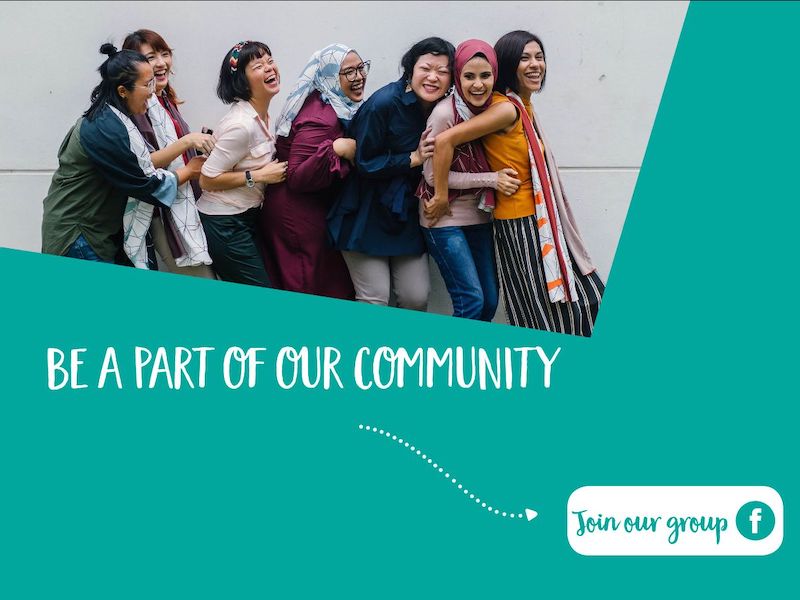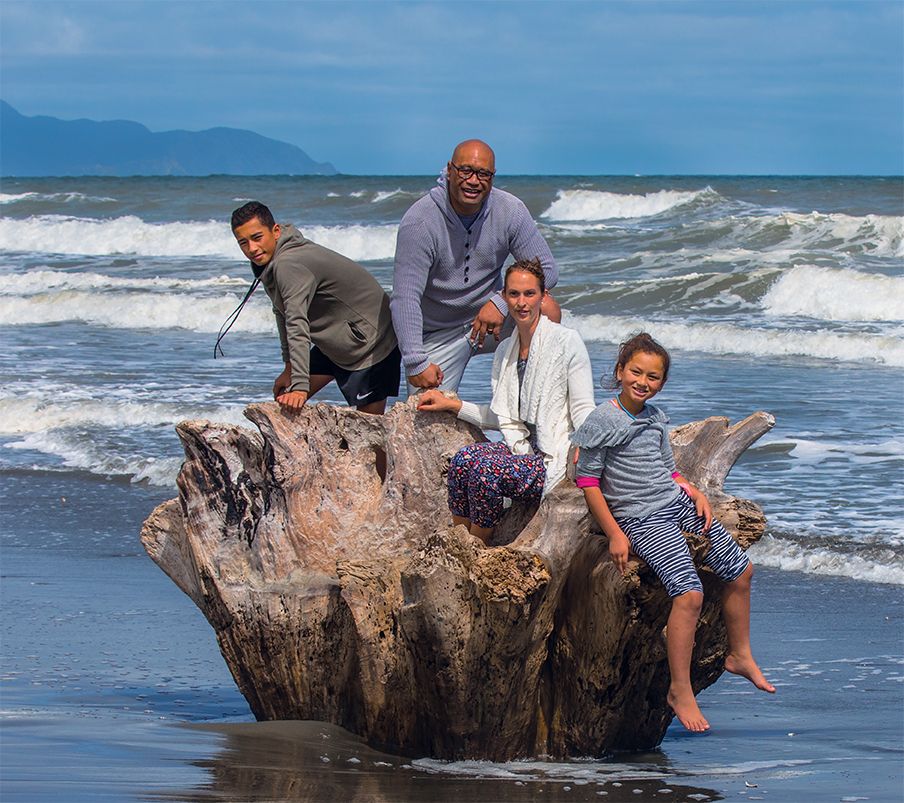Standing in the shower, I stared at the curtain. I couldn’t remember when I had last washed my hair or had any alone time that week. With shampoo dripping into my eyes, I began to cry. I wept as my idea of being a mother washed down the drain. Everything seemed so hard and nothing I was doing seemed right!
I had concocted a beautiful, magazine cover life as a mother, yet what I was experiencing was far from that. It was not until several weeks later, having a much-needed catch-up with a valued older friend, that I answered her “Are you OK?” question honestly and realised I had postnatal depression.
My journey through postnatal depression has been long and varied. I started by feeling overwhelmed, lost and alone, found hope and assurance from both trusted old and new friends, then started a group for other mums who needed connection. The greatest lesson I learned from my experience is that my mental health and wellness is crucial to the wellbeing of my children and family. I am also learning that mental wellness is a lifelong journey.
The crying-in-the-shower experience was a reality check for me, the moment I realised my newborn son needed me and I needed support. But recognising I needed support did not happen overnight.
My experience started with irrational thoughts, emotional breakdowns and a feeling of hopelessness. I knew, deep in my heart, that it was not OK or healthy for anyone. Looking back, I now know I was grieving my former life as a newly married, carefree young woman. As much as I loved the idea of being a mum, in those first few months, I felt I was somehow “missing out” on something. Although my son was always safe, I kept having irrational thoughts about his safety and all the “what if” scenarios ran through my mind.
I will be forever grateful for the friend who came over, sat down on the lounge floor next to me, looked into my eyes and asked, “Are you OK?” I was filled with shame when my answer was “No, I am not OK. I am overwhelmed and feeling sad.”
However, recognising that what I was going through was not normal and that there was hope was my first step to healing. Once I realised I was in need of support, I found it refreshing to share and seek wisdom from women I came into contact with. As humans, we desperately need connection and to be heard, seen and belong. As mothers, we need other people to share ideas with, to ask questions about our children and to share a laugh with.
I was blessed to be a part of an active church family that was intentional in connecting with people. There was a range of women I could form relationships with and gain wisdom from and so I began to make the most of every opportunity (other places to build connections are postnatal groups, playgroups or book clubs)*.
I discovered how important it was for my own sense of identity and wellbeing to go for a walk with a friend, be part of a group with similar needs and to begin to connect outside the new mum bubble I was in that can so easily isolate new parents from the world.
One of the best ways to overcome the shadow and heaviness of postnatal depression is to do something. I got involved in the community and rebuilt my confidence. This actually started with a walk around the block! A valued friend with older children encouraged me to go for a walk with her three times a week. We walked and talked, I gleaned her wisdom and cherished speaking with another woman, and I began to notice my pants were fitting better! What a great benefit of a little walk: talking, sharing and fitness.
A few weeks into walking with my friend, I started a new mothers’ group to share and build relationships. Most of the mothers came from within my faith community and within weeks, each one of us had invited another friend who would benefit. We moved the group from home to home so the full pressure was not on one person to host. There was no agenda; just a hot beverage and conversation.
We were intentional to include anyone who would benefit in belonging to such a group. We had great conversation, laughed a lot and celebrated our children’s milestones. We had conversations around the overwhelming feelings that come with being a new parent and we shared what worked best for us. Connecting was key, but creating a sense of belonging became the focus of the group. We all knew someone who didn’t have people to connect with, who was possibly isolated at home and needed a morning out, and we intentionally invited them to our group. Including them also gave each of us meaning and purpose beyond our own reality.
My overwhelming tears-in-the-shower experience is many years ago now but I still recall the emotions, smells and sounds as if it were this morning. I will be forever grateful to the older friend who recognised I was not myself and dared to ask “Are you OK?” I learned that those three simple words are not difficult to ask—or answer—and this has propelled me into being more aware of those around me, asking that simple question and being prepared to listen. After all, someone did it for me and I was able to recognise that no, I was not OK.
My experience with postnatal depression was only a matter of months, yet at the time I felt isolated, overwhelmed with life and was unhealthy. That simple question, my recognition and the following weeks and months shifted a difficult first year as a mother to a warm space of belonging and celebration.
Being a part of something embedded my sense of connection. My church family played a big part in this, as well as the many people in my life who I felt safe to connect with. What if I hadn’t been a part of a faith community? I would have looked for mothers’ groups, walking groups, book clubs, library activities, art and craft groups, language groups . . . any group in my community that could become a place of belonging for me and my child.
Staying isolated in the new-mum bubble is not healthy, especially if you are feeling overwhelmed and sad. Get active, go for a walk. Your body will thank you and your child will enjoy being out in the fresh air. Our stories as mothers are varied and diverse, however the fundamental need for belonging remains the same. An immense part of my healing came from reaching out and supporting other new parents along the exciting and hopeful journey of being a parent.
Surround yourself with people who will love you through anything, are willing to ask hard questions and care deeply about your wellbeing. Being a mum is awesome and exciting.
* Sometimes, we may also need to access professional help to find a way through the deep sense of grief and sadness that can accompany postnatal depression, and there is absolutely no shame in that. Talk to a health care professional or a child wellness expert, such as a Plunket, Karitane or an early childhood health nurse, for advice, support and help with connecting with others in your community.
Lifeline: 13 11 14 Australia | 0800 54 33 54 New Zealand
WIN CHILDREN’S BOOKS!
Submit a personal story on your parenting journey, thoughts or experience and if we use your story, we’ll send you a selection of children’s books! Write to us at editorial@mumsatthetable.com.

How helpful was this article?
Click on a star to rate it!
0 / 5. 0
Be the first to rate this post!
Jewel Douglas
Related posts
Subscribe
Receive personalised articles from experts and wellness inspiration weekly!


